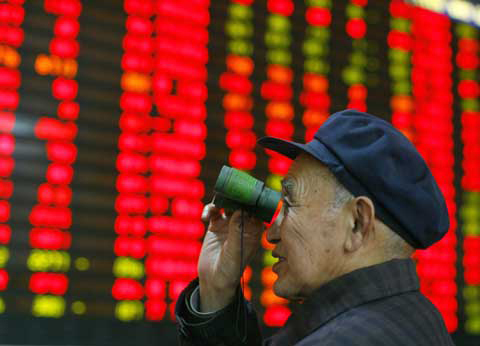Experienced Investor
China’s bubble bursts: what it means for investors

China’s recent embrace of the market is clearly qualified. Beijing likes market forces when they push prices higher but prefers old-fashioned intervention when they start to fall again.
The remarkable stock market rally of the past year or so has been all but state-sponsored, with a series of articles in Government-controlled media extolling the virtues of equity investment. That has encouraged a new generation of young, inexperienced and often poorly-educated Chinese to pour their savings into the market.
Margin trading (investing with borrowed money) boosted returns on the way up but it has also magnified falls since the bubble burst in June. Now the Government is struggling to contain a market crash that threatens its own credibility.
The measures taken by the authorities look increasingly desperate. They include announcing a target level for the market below which brokers will not sell shares (4,500, which is rather higher than today’s Shanghai Composite which trades well below 4,000 after a peak above 5,000).
Other measures include the shelving of 28 IPOs to prevent new issues sucking money out of the secondary market to take advantage of sometimes sizeable first day price rises.
The Government is also targeting individual large stocks – the ones, like PetroChina, with the biggest influence on the main indices. A number of shares have risen strongly in recent trading sessions against the trend of the rest of the market, suggesting concerted buying by the authorities.
These are worrying developments for investors in China because they suggest that the market is far from free. It is a salutary reminder that central Government continues to exert enormous influence in all areas of Chinese life. Investing in China requires political as well as financial and economic judgement.
Another concern in recent days has been the increase in the number of companies choosing to suspend trading in their shares to protect themselves from the volatility. The ability to buy and sell shares on an open market is a pre-requisite for any serious exchange.
The developments in China have been rather overshadowed by events in Greece but it is arguable that what is going on in Shanghai and Shenzhen is more influential. There are apparently more than 20 Chinese cities with a bigger population than the whole of Greece which accounts for just 1.5% of European GDP and a smaller proportion of its market capitalisation.
The fear is that China’s stock market woes could spill over into the real economy via financial market contagion or through reductions in consumer spending on the back of market losses.
It is possible that this market correction will blow over in time, and with some concerted intervention by Beijing. But it is a reminder that emerging markets are a two-edged sword – they provide access to some of the most exciting investment stories in the world but that comes with increased risk.
Emerging markets should represent only a relatively small proportion of a well-balanced portfolio and exposure should be well diversified geographically. A global emerging markets fund is probably a better way in than a country specific fund.
Emerging markets are best-suited to an active investment approach too. The differences between individual stocks are as great as those between different countries, so an index-tracking approach is likely to buy as many poor shares as good ones.
Fidelity’s Select List has four actively-managed global emerging market funds: Fidelity Emerging Markets, JPM Emerging Markets, Lazard Emerging Markets Institutional and Threadneedle Global Emerging Markets Equity.
[article_related_posts]